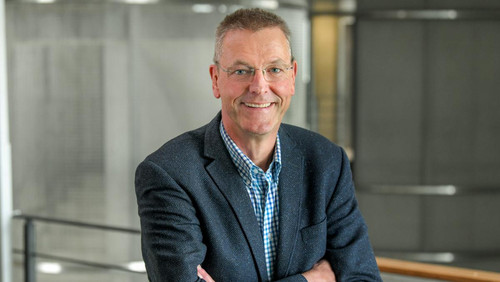
Glycan target specialist Tacalyx GmbH expands its seed financing to €14m to advance its anti-TACA cancer therapies.
Tacalyx GmbH, the 2019 spin-out from Peter Seeberger’s glycan research group, has doubled its seed funding from €7m to to a bit over €14m to advance its discovery-stage and preclinical pipeline of so-called anti-TACA (Tumor Associated Carbohydrate Antigensa) cancer compounds. The expansion round was led by new investor Thuja Capital, which joined existing investors Boehringer Ingelheim Venture Fund (BIVF), Kurma Partners, High-Tech Gründerfonds (HTGF), coparion, IdInvest/Eurazeo, Creathor Ventures and the Max Planck Society (MPG).
Tacalyx targets certain glycan structures selectively expressed during embryonic development and on cancer cells but not on differentiated body cells under normal physiological conditions. This glycosylation can directly influence the interaction between integrins and the extracellular matris on the surface of cancer cells, affecting the mechanical structure and biological functions of cancer cells, such as adhesion, migration and invasion. The company’s lead candidate TCX-101 is a MMEA antibody-drug conjugate (ADCs). However, according to the company, it includes also undisclosed T-cell engagers (TCEs). With the additional funding, Tacalyx plans to develop two of its novel antibodies into late preclinical stage and advance several earlier stage programmes.
Tacalyx uses customised synthetic antigens in combination with antibody generation technologies. To expand the development pipeline, Tacalyx has entered into several academic collaborations to identify new TACAs. With its platform, Tacalyx has developed a pipeline of seven programmes targeting both known and novel TACAs with “high relevance for human malignancies”.
Dr Peter Sondermann, CEO and co-founder of Tacalyx, commented: ‘With this additional funding, we will be able to advance two of our compounds to clinical candidates and advance others to the point where they are ready for preclinical development. Thanks to our progress to date, we are well positioned to advance our pipeline candidates both independently and to explore partnering options that will further advance our cancer research. Our technology holds the promise of novel and more effective treatment options for cancers that are currently inadequately treatable. We look forward to taking the next steps with the support of our expanded investor base.”
- SEO Powered Content & PR Distribution. Get Amplified Today.
- PlatoData.Network Vertical Generative Ai. Empower Yourself. Access Here.
- PlatoAiStream. Web3 Intelligence. Knowledge Amplified. Access Here.
- PlatoESG. Carbon, CleanTech, Energy, Environment, Solar, Waste Management. Access Here.
- PlatoHealth. Biotech and Clinical Trials Intelligence. Access Here.
- Source: https://european-biotechnology.com/up-to-date/latest-news/news/tacalyx-extends-seed-capital-financing.html
